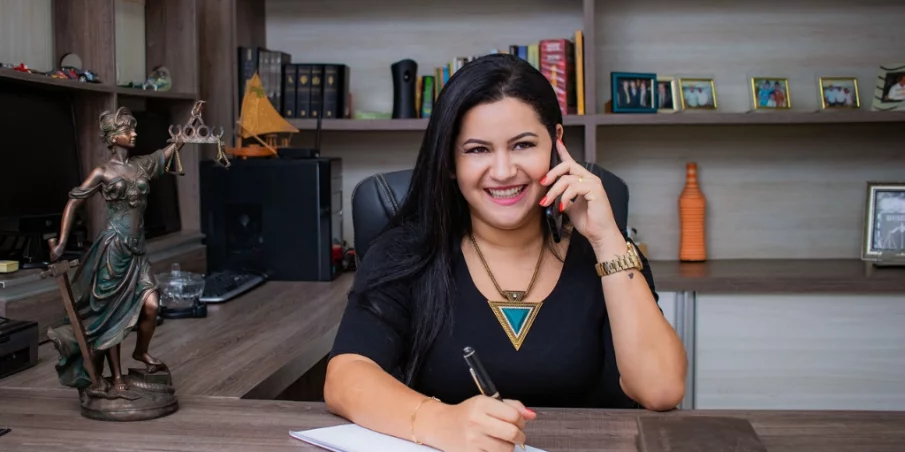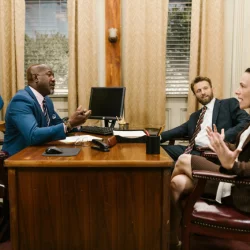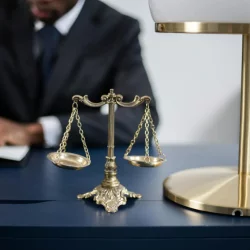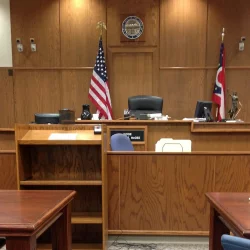Lawyer Consultation Fee: What You Need to Know Before Meeting an Attorney

So, you’re thinking about meeting with a lawyer, but the idea of a lawyer consultation fee has you pausing. How much is this going to cost? Will it be worth it? These are totally normal questions! Whether you’re dealing with a personal injury, a family matter, or just need some legal advice, understanding what a consultation fee is and why it exists can save you stress and help you make smart choices. Let’s break it all down in a way that makes sense, so you can walk into that meeting feeling confident.
What Is a Lawyer Consultation Fee?
A lawyer consultation fee is the cost you pay for an initial meeting with an attorney. Think of it like a test drive: you get to sit down, explain your situation, and see if this lawyer is the right fit for you. During this meeting, the lawyer listens to your story, asks questions, and gives you a sense of your legal options. It’s not about signing a contract right away—it’s about getting clarity on your next steps.
These fees can vary a lot, and not every lawyer charges them. Some offer free consultations, especially in fields like personal injury, while others might charge anywhere from $50 to $250 or more for a half-hour or hour-long meeting. Why the difference? It depends on the lawyer’s experience, their practice area, and where they’re located. A high-profile attorney in a big city might charge more than a small-town lawyer handling simpler cases.
Why do some lawyers charge for this? Time is money for them. When they’re meeting with you, they’re not working on other cases or billing other clients. Plus, that initial meeting often involves real work—like reviewing documents or giving tailored advice. For example, imagine you’re meeting a lawyer to discuss a messy divorce. They might spend time before the meeting reading through your emails or court papers to give you solid advice. That prep time adds up, and the fee covers it.
Factors That Affect Lawyer Consultation Fees

Ever wonder why one lawyer charges $100 for a consultation while another asks for $300? It’s not random. Several factors play into what you’ll pay, and understanding them can help you budget and choose the right attorney.
Lawyer’s Experience and Expertise
The more experienced the lawyer, the higher the fee tends to be. A seasoned attorney who’s been practicing for 20 years and specializes in complex corporate disputes will likely charge more than someone fresh out of law school handling basic contracts. Their expertise comes with a price tag because they bring years of knowledge to the table. For instance, if you’re facing a tricky tax issue, a veteran tax lawyer’s advice during a consultation could save you thousands down the line, even if their fee feels steep upfront.
Practice Area
The type of law matters too. Personal injury lawyers often offer free consultations because they work on contingency fees, meaning they only get paid if you win your case. It’s like they’re betting on your case’s success. On the other hand, fields like family law, business law, or immigration law often come with consultation fees because these cases involve ongoing work billed by the hour. For example, a divorce lawyer might charge $200 for a consultation to discuss custody issues, while a personal injury lawyer might meet you for free to talk about a car accident claim.
Location
Where the lawyer’s office is located makes a big difference. Lawyers in big cities like New York or Los Angeles often charge more because the cost of living (and running a law firm) is higher. A consultation in Manhattan might cost $250, while the same meeting in a small town could be $100 or even free. It’s like how a coffee costs more in a fancy city café than at a local diner.
Case Complexity
If your legal issue is complicated, the consultation fee might reflect that. A straightforward question about a lease agreement might cost less than a consultation about a multi-party business dispute. Why? Complex cases require more prep work and mental energy from the lawyer. Imagine bringing a stack of documents about a property dispute to a meeting—the lawyer needs time to dig into those details to give you useful advice, and that effort bumps up the fee.
Free Consultations: Are They Really Free?
You’ve probably seen ads for “free consultations” from lawyers, especially for personal injury or criminal defense cases. Sounds great, right? But are they truly free, or is there a catch? Let’s unpack this.
Free consultations are common in areas where lawyers work on contingency fees. Personal injury lawyers, for example, often meet with clients for free because they only get paid if they win your case—usually taking 25% to 40% of your settlement. During the consultation, they’re sizing up your case to see if it’s worth their time. If they think you’ve got a strong claim, they’ll take it on without charging you upfront. It’s a win-win: you get free advice, and they get a potential payday.
But here’s the thing—not all free consultations are created equal. Some lawyers might rush through a free meeting, giving you just 15 minutes and a quick pitch to hire them. Others might use paralegals to screen clients, so you’re not even talking to the attorney. If you’re meeting for free, make sure you’re getting real value. Ask questions like, “What are my chances of winning?” or “What’s the next step?” to make the most of it.
In contrast, paid consultations often mean you’re getting the lawyer’s full attention for a solid chunk of time—sometimes an hour or more. They’re more likely to dive deep into your case, review documents, and give you detailed advice. For example, if you’re dealing with a business contract gone wrong, a paid consultation might give you a clear game plan, while a free one might just skim the surface.
How to Prepare for a Lawyer Consultation
Paying for a consultation (or even getting a free one) is only worth it if you’re prepared. Walking in with a clear idea of what you want to discuss can save you time and money. Here’s how to get ready.
First, gather any documents related to your case. If it’s a divorce, bring court papers, emails, or financial records. For a personal injury case, have medical bills, police reports, or photos of the accident. These give the lawyer something concrete to work with. Imagine showing up to a meeting about a property dispute with nothing but a vague story—it’s harder for the lawyer to help you without the paperwork.
Next, write down your questions. What do you want to know? Maybe it’s, “Do I have a strong case?” or “How much will this cost me overall?” Having a list keeps the conversation focused. It’s easy to get sidetracked when you’re nervous, so a few notes can keep you on track.
Finally, be honest. Lawyers can’t help you if you hold back key details, even if they’re embarrassing. If you’re discussing a criminal case, for instance, tell the whole story—your lawyer needs to know the good, the bad, and the ugly to give you the best advice. Everything you say in a consultation is confidential, so don’t worry about it leaving the room.
Questions to Ask About the Consultation Fee
Before you book that meeting, it’s smart to ask a few questions about the fee itself. This helps avoid surprises and ensures you’re getting what you pay for. Here are some things to clarify:
- Is the fee fixed or hourly? Some lawyers charge a flat rate for a consultation (say, $150), while others bill by the hour. If it’s hourly, ask how long the meeting will likely take.
- Will the fee be credited? Some lawyers apply the consultation fee toward your overall bill if you hire them. For example, if you pay $200 for a consultation and then retain the lawyer, that $200 might reduce your first invoice.
- What’s included? Does the fee cover just the meeting, or will the lawyer review documents beforehand? Knowing what you’re paying for helps you gauge the value.
- Are free consultations an option? If the fee feels steep, ask if they ever offer free or discounted consultations, especially for simpler cases.
Asking these upfront shows you’re serious and helps you compare lawyers. For instance, if one attorney charges $100 for a thorough hour-long meeting and another offers a free 15-minute chat, you can weigh which feels like a better deal for your needs.
How to Find Affordable Consultations
Let’s be real—legal fees can feel overwhelming, especially if you’re already stressed about a legal issue. The good news? There are ways to find affordable consultations without sacrificing quality.
Start by asking for recommendations. Friends, family, or coworkers might know a lawyer who offers reasonable fees or even free consultations. Personal referrals are gold because you get real insights into the lawyer’s style and costs. For example, your cousin might rave about a family lawyer who charged $50 for a consultation and was super helpful.
You can also check online reviews on platforms like Avvo or Google. Look for comments about consultation fees or free meetings. If clients mention affordable consults, that’s a good sign. Just be wary of lawyers who seem too cheap—it might mean they’re inexperienced or cutting corners.
Another option is legal aid or referral services. Some organizations, like the New York City Bar Legal Referral Service, connect you with vetted lawyers for a low fee (like $35 for a 30-minute consultation). These services are great if you’re on a tight budget or just need quick advice.
Finally, don’t be afraid to shop around. Call a few lawyers and ask about their consultation fees. Be upfront about your budget—some might offer a discount or a shorter, cheaper meeting if you’re clear about what you can afford. It’s like haggling at a market, but with less yelling.
Is a Consultation Fee Worth It?
So, is shelling out for a lawyer consultation fee worth it? It depends on your situation, but in most cases, it’s a smart investment. A good consultation gives you clarity, answers your questions, and helps you avoid costly mistakes. For example, paying $150 to learn you don’t have a strong case could save you thousands in wasted legal fees later. Or, a $200 consultation might give you a roadmap to win a dispute, making it a bargain in the long run.
Even free consultations have value, especially if you’re exploring a personal injury claim or a simple issue. The key is to go in prepared, ask the right questions, and choose a lawyer who feels like a good fit. Whether you’re paying or not, that first meeting is your chance to take control of your legal situation.
Wrapping It Up
Navigating lawyer consultation fees doesn’t have to feel like a maze. By understanding what these fees cover, why they vary, and how to prepare, you can make the most of your meeting with an attorney. Whether you’re paying $50 or getting a free consultation, the goal is the same: to get clear, actionable advice that moves you forward. So, take a deep breath, gather your documents, and don’t be afraid to ask questions—you’ve got this!
If you’re ready to meet with a lawyer, start by calling around or checking online reviews to find someone who fits your budget and needs. A little prep now can save you a lot of stress later, and that’s worth its weight in gold.
More to Read:
Previous Posts:
Next Posts:





